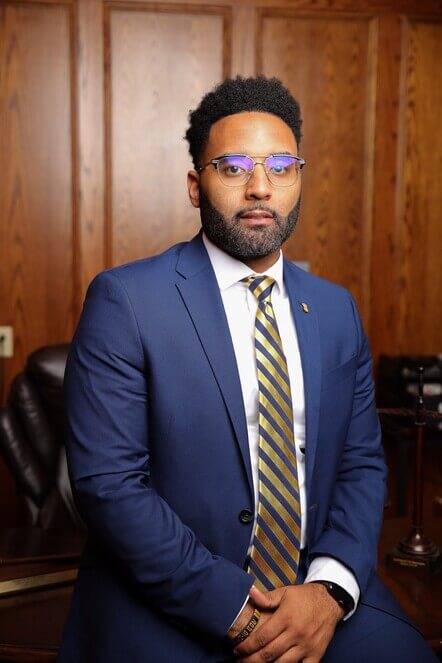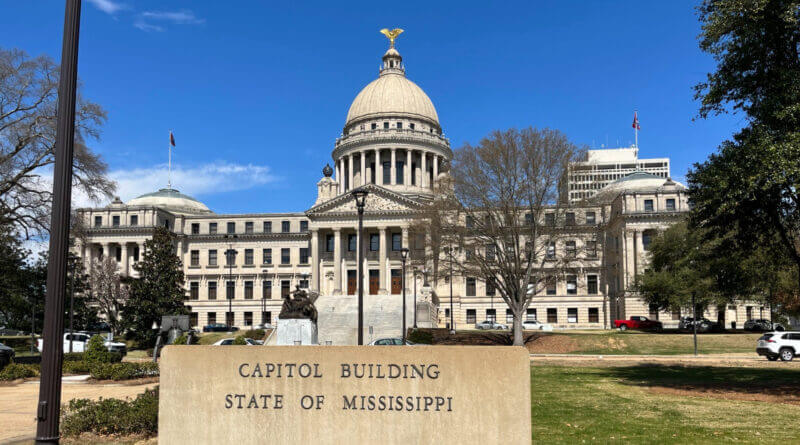Hickman: New Year, New Legislative Priorities
Note: The following is an op-ed article provided by state Sen. Rod Hickman regarding legislative priorities for the Legislative session
By Sen. Rod Hickman
It is tradition for many of us to make resolutions for the new year, a tradition I’m sure many of us have participated in this year. Additionally, here in Mississippi, each new year also brings with it a new legislative session. This year, instead of sharing my resolutions, I thought it would be better for me to share my legislative priorities.
I am extremely hopeful that my colleagues and I will use the 2024 legislative session to put Mississippi on an upward trajectory. Specifically, this year I will introduce bills that reduce or eliminate the grocery tax, eliminate warrantless searches based solely on the smell of marijuana, expand Medicaid and create a sustainable plan to save our rural hospitals, and make our elections both safer and more accessible.

Overall, the state’s current economic outlook seems promising. Currently, Mississippi has $4 billion in unanticipated funds to spend. But the promising outlook prompted by the current “revenue surplus” means little if the general welfare of Mississippi’s citizens through investments in public education and infrastructure are not met.
The truth is that our public K-12 schools are underfunded by nearly $300 million for the 2022-2023 school year; not all Mississippians have access to clean, safe drinking water; and many rural hospitals are closing as Mississippians cannot access quality, affordable healthcare services. Some of my colleagues will argue that we should save money from our surplus or spend it on eliminating the state’s individual income tax―a move that would provide yet another large tax cut for the state’s wealthiest, and little benefit for anyone or anything else. However, I contend that we should advance legislation to help families put more food on the table and afford basic needs.
For example, instead of eliminating the individual income tax, it would be more helpful for us to cut the state’s grocery tax and make local governments whole in that process. With nearly 1 in 4 Mississippians living below the poverty line, Mississippi still has the nation’s highest poverty rate. And according to a report by the United Way, another 31% of Mississippians cannot afford basic household necessities– including food. Eliminating the state’s grocery tax would cost much less than eliminating the income tax, save the state much-needed revenue to pay for vital public services, and provide more targeted tax relief for the state’s lowest-and middle-income earners.
It’s also worth noting that the revenue from the state income tax accounts for a third of our general fund—the portion of the budget that takes care of the most basic services you expect the government to handle. Things like education funding and money for roads and bridges come from this portion of the budget.
All Mississippians, especially women and children, should have access to the services and programs that allow them to live a long, healthy life. Unfortunately, Mississippi women and children continue to face some of the greatest barriers to economic well-being in the country. Therefore, I plan to introduce legislation that requires the state to give six weeks of maternity leave to its employees. A six-week paid maternity leave for state employees in Mississippi should include generous, competitive paid leave, should be made available for all employees, and should be made available for women and adoptive parents. Adopting this law will help contribute to healthy child development, improved maternal health, reduced financial insecurity, and improved retention and productivity in the labor force.
Also, I will introduce legislation to make our elections safer and more accessible. Mississippi’s voting laws are some of the most restrictive in the nation. For instance, Mississippi is one of only three states to permanently restrict people convicted of certain felonies from voting. Mississippi also requires a photo ID to cast a ballot in person at the polls or by absentee ballot in the circuit or municipal clerk’s office, does not provide no-excuse absentee voting, does not allow early voting, and does not allow mail-in voting, except for a few categories of absentee voting. To make our elections safer and more accessible, I will introduce and support legislation that allows for: automatic, online, and same-day voter registration, extended voting hours, and no-excuse early voting and mail-in voting. It’s also critically important that we make the process for restoring the right to vote after criminal conviction clearer and more effective, and that we work to restore the state’s ballot initiative process.
Lastly, I will also introduce legislation to advance criminal justice reform. I’m currently working on legislation that would forbid police from using the smell of marijuana as probable cause to conduct a warrantless search of a motor vehicle, home, or other private property. This is important to protect citizens now that the state has implemented a medical marijuana program which includes smoke marijuana. Under current law, a law enforcement officer can conduct warrantless searches and arrest simply because the officer smells what he or she believes to be marijuana. This law would stop unwarranted invasions of privacy simply because an officer smelled marijuana. The bottom line is that patients shouldn’t have to worry about what happens in every interaction with a police officer because they could possibly smell like illegally-obtained medication.
In all, I am hopeful that this new year will bring about more opportunity and prosperity for all Mississippians and bring as many resources as possible into Mississippi District 32. As I work with my colleagues to ensure a successful, impactful 2024 legislation session, my hope is that residents across the state engage in the legislative process and make their voices heard, as well. Together, we will move Mississippi forward.
Sen. Rod Hickman (D-Macon) is vice-chair of the Interstate and Federal Cooperation Committee.






